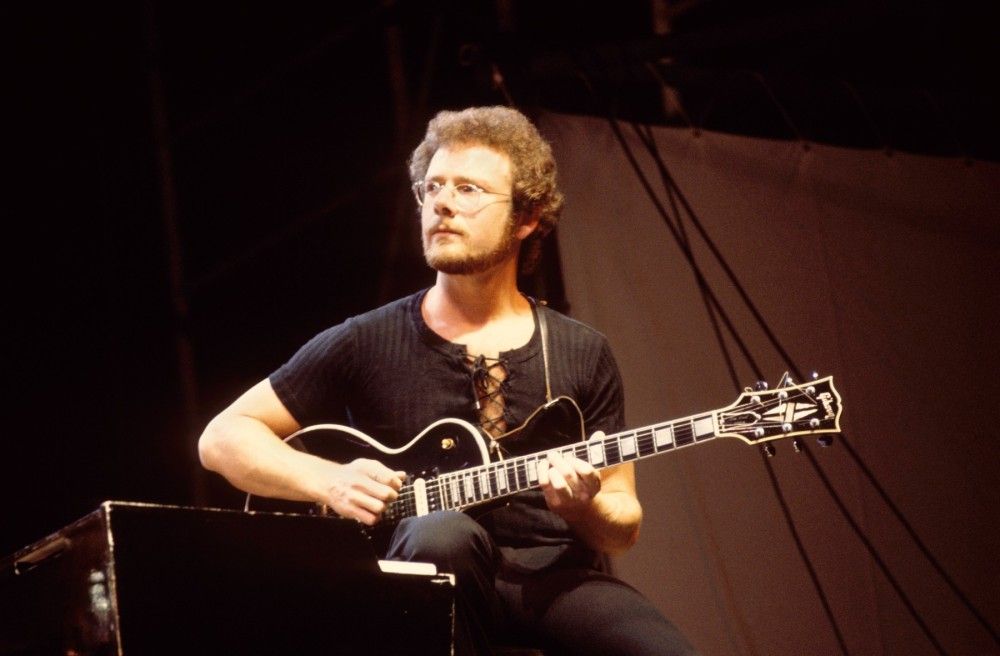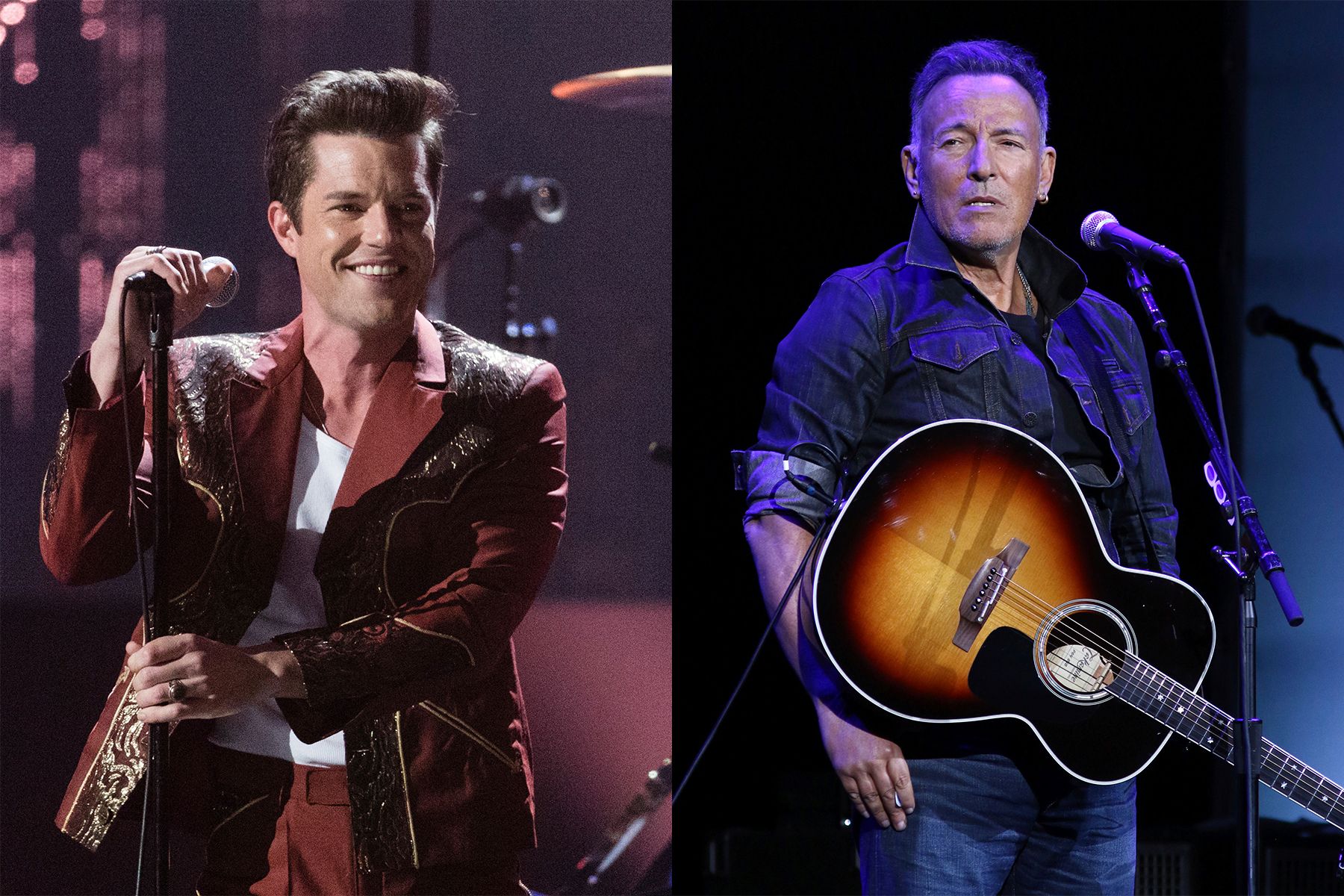
King Crimson’s Robert Fripp Sets Fall Release for Band Doc. But Another Tour? ‘Only to Prevent World War III’
In the universe of King Crimson, one of rock’s most challenging art-prog bands, nothing was ever easy: personnel changed as often as time signatures. Now the same seems to be true of In the Court of the Crimson King, the documentary about the band’s 50th anniversary tour in 2019 that is still awaiting release.
When it began playing at film festivals in the U.K. and U.S., including South by Southwest, the response to the doc was uniformly positive: Critics appreciated the candid and frank comments about the band’s history from founder Robert Fripp and various past and present members, and the footage of their commemorative tour was well balanced with archival clips. You’d think that buzz would have led to a distribution or theatrical-release deal, but not so, as Fripp tells RS. “In terms of presentation, we’ve done everything good advice would tell us to do — to go to respected film festivals and have it be well received. Then the next assumption is distribution, and the obvious culprits would seem to be Netflix or Disney or Amazon. But there has been no significant interest from that area. There’s been some interest, but it’s been pitiful.”
As a result, Fripp says, he and his management company are exploring different options, from some sort of fan-centric streaming release to a possible “small box set” on DVD, which would couple the film with footage of two Crimson shows, including their 2019 Rock in Rio performance. “These are all possible ways to make it available for ordinary people to see,” he says. Either way, Fripp says he’s hoping the film will finally arrive in October.
The unveiling of the movie won’t be fans’ only exposure to Fripp in the months ahead — but again, those plans won’t follow any traditional path. Two years ago, he and his wife, British pop singer and actress Toyah Willcox, began filming “Sunday Lunch” videos in the kitchen of their home near Birmingham, England, playing and singing classic-rock, pop and punk covers during lockdown. Next year, the two will be taking that idiosyncratic show on the road, with Fripp joining Willcox’s band.
“It will be telling the story of the ‘Sunday Lunch’ while also rocking out on the classic hits,” Fripp says. “I’m getting the opportunity to play lots of great rock riffs I was never able to play in King Crimson.” But thanks to the high cost of touring and work visas, the tour will be limited to the U.K.
Fripp heads will get to check him out in person in the States this fall, but in another, entirely different setting. With his manager David Singleton serving as moderator, Fripp will be presenting “An Evening of Conversation,” where he will take questions from the audience but play no music (although he says some rare footage and recorded music may be incorporated into the talks). “Thinking musically and thinking verbally are two different parts of my thought process,” he says, “and it’s difficult for me to [jump] back and forth.”
In 1979, Fripp went on a similar trek, promoting his Exposure album with appearances in record stores and coffeehouses; there, he played Frippertronics guitar pieces and fielded questions. It wasn’t always the most pleasant experience. In one store, a fan asked, “Can I touch you?” to which Fripp replied, “No, you may not touch me…. If I can play that music, and you can listen to it, then we have touched.”
“Some 43 years later, people are posting their comments on what it was like to meet ‘that awful man,’” he quips. “‘Oh, he could have been kinder to me.’” He’s not quite sure what to expect this time, but Fripp says he will do his best to adapt. “Judging by my experience, asking questions seems to be a very hard thing to do [of fans],” he says. “Very few people seem to be able to ask a clean and honest and burning question. Historically, a lot of the questions aren’t quite questions; they’re statements, generally quite unpleasant and unkind. I haven’t engaged with these, but now at 76 I’m beginning to be a little more discriminating. If people would like to buy a ticket and come along, they’ll get our best shot.”
Whether King Crimson itself will ever be seen on a stage again is less certain. “No plans at all,” he says. “I think we have to view the reality of the age of the people involved. Two of us are 76, and shortly three will be. So going out for eight weeks to do performances of three hours and 20 minutes is a very big ask. It takes me six months to get ready as a player. King Crimson guitar parts for me are the Olympics of guitar playing. And being asked to do athletic feats that I was doing 40 or 50 years ago, that’s also a big ask.”
To exacerbate matters, Fripp says the band’s 2021 tours were “logistically terrifying,” starting with having to put up $2 million in advance for hotels, truck, and touring equipment. “In the time of lockdown, the people providing services were nervous,” he says, “and they wanted deposits, quite reasonably.” Traveling to the States from Europe, the group had to endure random searches and health checks upon departure, only to arrive in the U.S. for their first shows in Florida and Texas and find neither masks nor precautions. “No one gave a hoot!” Fripp exclaims. “At the time, 40 percent of the new outbreaks were in those two states. If we had lost dates because of Covid, the King Crimson partnership would have been bankrupted. It was that much on an edge.”
So what would it take for the band to resume live shows? “If you asked what would it take for King Crimson to go on a major tour again?” he says. “My quick answer would be: If I knew for certainty that King Crimson touring was the only way to prevent World War III, I’d be making phone calls.”
That’s a high bar. “Yes it is! There are some commentators in your country who say the bar is getting closer.”



